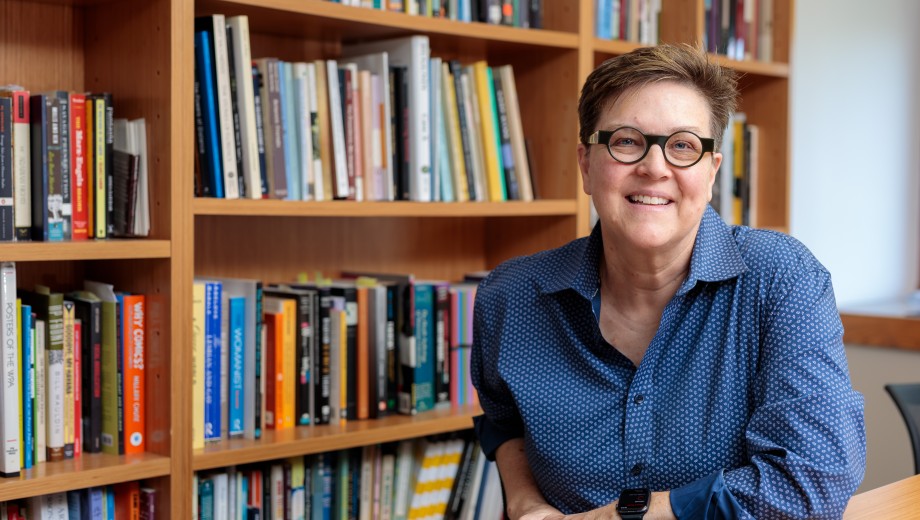Dear Alumni and Friends,
We find ourselves in a strange moment in history—one of intensified cultural clashes, geopolitical realignments, and challenges to higher education, including the humanities. This moment will undoubtedly be scrutinized extensively by future historians, but it remains challenging to contend with as it unfolds around us in the present tense. At a time of such uncertainty, I am gratified to lead a collection of scholars and artists whose work implores us to learn from our past and consider the vast possibilities that lie ahead.
This issue of Tableau reflects the breadth of wisdom and creativity our faculty and alumni have to offer: an alumnus recovering a bracing nineteenth-century emancipation narrative from obscurity, a new master’s program integrating computational technologies with traditional research methods, and Philosophy junior faculty tackling complex questions about the nature of knowledge, action, and belief. We also explore the climate crisis from several angles, with two scholars examining its relationship to our ever-accelerating reliance on energy and two alumnae sharing their successes in sustainability work. There is much to celebrate as well: the 50th anniversary of the Smart Museum of Art, a student’s receipt of a Rhodes Scholarship, and the recent return of Jacqueline Stewart, AM’93, PhD’99, to our campus. We also remember the life and legacy of Pope.L, one of the most important, provocative artists of our generation and a brilliantly compassionate teacher. Losing him is a tragedy that reminds us how fortunate we were to have him in our community.
Humanistic research and artistic practice continue to flourish at the University of Chicago, remaining integral to our institution even as they face decline elsewhere in academia. As you may have already noticed, we have changed our name to the Division of the Arts & Humanities, a move that formally recognizes what has long been true: The arts inform thoughtful scholarship, incisive research inspires artists, and the interplay between the two helps forge connections between academic inquiry and broader audiences. By bringing UChicago’s performances and exhibitions into the fold of a single division, we are aligning our flowering artistic practice, production, and experimentation with the historical excellence of our departments. Incoming students in fall 2025 will matriculate in the Division of the Arts & Humanities. I wrote more about the rationale behind this change in the spring 2025 issue of The University of Chicago Magazine. You can also learn about the transition online at artshumanities.uchicago.edu.
Amid our current concerns and uncertainties, the humanities and the arts give us access to vital perspectives, groundbreaking ideas, and transformative beauty—things that will help sustain us as individuals and cultivate hope for our collective future. Thank you for sharing our commitment to these essential facets of the human experience and the work of our artists and scholars to analyze and embody them.
Deborah L. Nelson
Dean, Division of the Arts & Humanities
Helen B. and Frank L. Sulzberger Professor, Department of English Language and Literature

